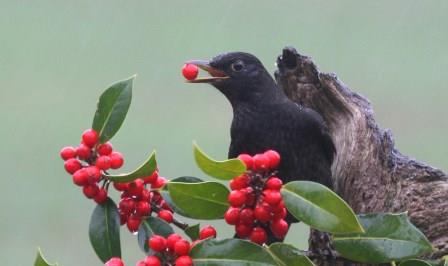Species Data
ERCCS manages over 8 million records, shared with us from local recorders, recording groups and projects as well as national societies, recording schemes and statutory bodies. All wildlife records are validated and verified through the ERCCIS verification protocol to ensure high quality and accuracy.
ERCCIS owns or hosts nine databases with all the data available for release being brought together via the ERCCIS Wildlife Information Service Reports.
There are three main types of species data we hold at ERCCIS:
- those that we directly own or manage (for example records held in the Recorder6 or the ORKS databases);
- those that we host (for example datasets owned by a biological recording schemes or society, like the Cornwall Mammal Group datasets) and
- those datasets that we have internal access to via a data exchange or data use agreements (for example the mycology societies dataset).
You can request species records in two ways: by species found throughout the county or by a geographical or site-specific area. When you request a species data search we will search through our 6 million species records to find the species that have been recorded in your requested area.

You can choose to have species information of:
- All species
- A specific taxonomic group
- Protected - List on the JNCC SOCC list & legally designated;
- Priority - List on the JNCC SOCC list, but NOT legally designated;
- Local Priority – List within the Red Data Book for Cornwall and the Isles of Scilly;
- Non-Native – Listed on the Cornwall Invasive or non-native
Depending on your requirement, WIS will then provide a bespoke spreadsheet list, a PDF list and a GIS map of species records in your study area.
ERCCIS keeps up to date with a wide range of facts, figures and reports allowing us to provide information on almost any wildlife issue, but we are only able to do this with the help of people like you, submitting your wildlife records to ERCCIS and keeping our information up-to-date. You will no doubt collect your own data from surveys you conduct as part of your project, and as we are supplying you with the data we hold, we would be grateful if you could return the favour. Please do check our wildlife recording website ORKS to find out more about how you can make your own contribution or ask one of the WIS team about getting involved in biological recording or joining local recording groups.

